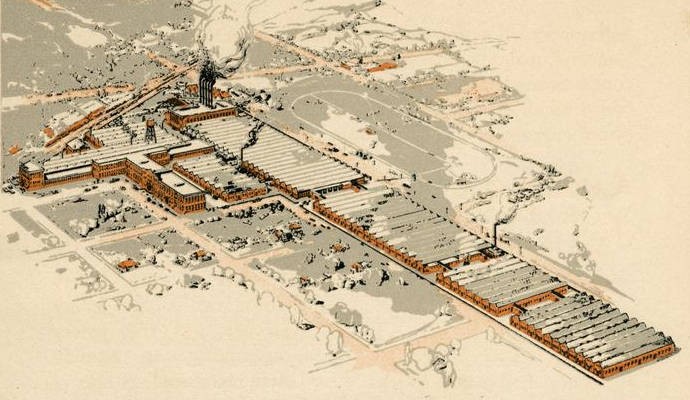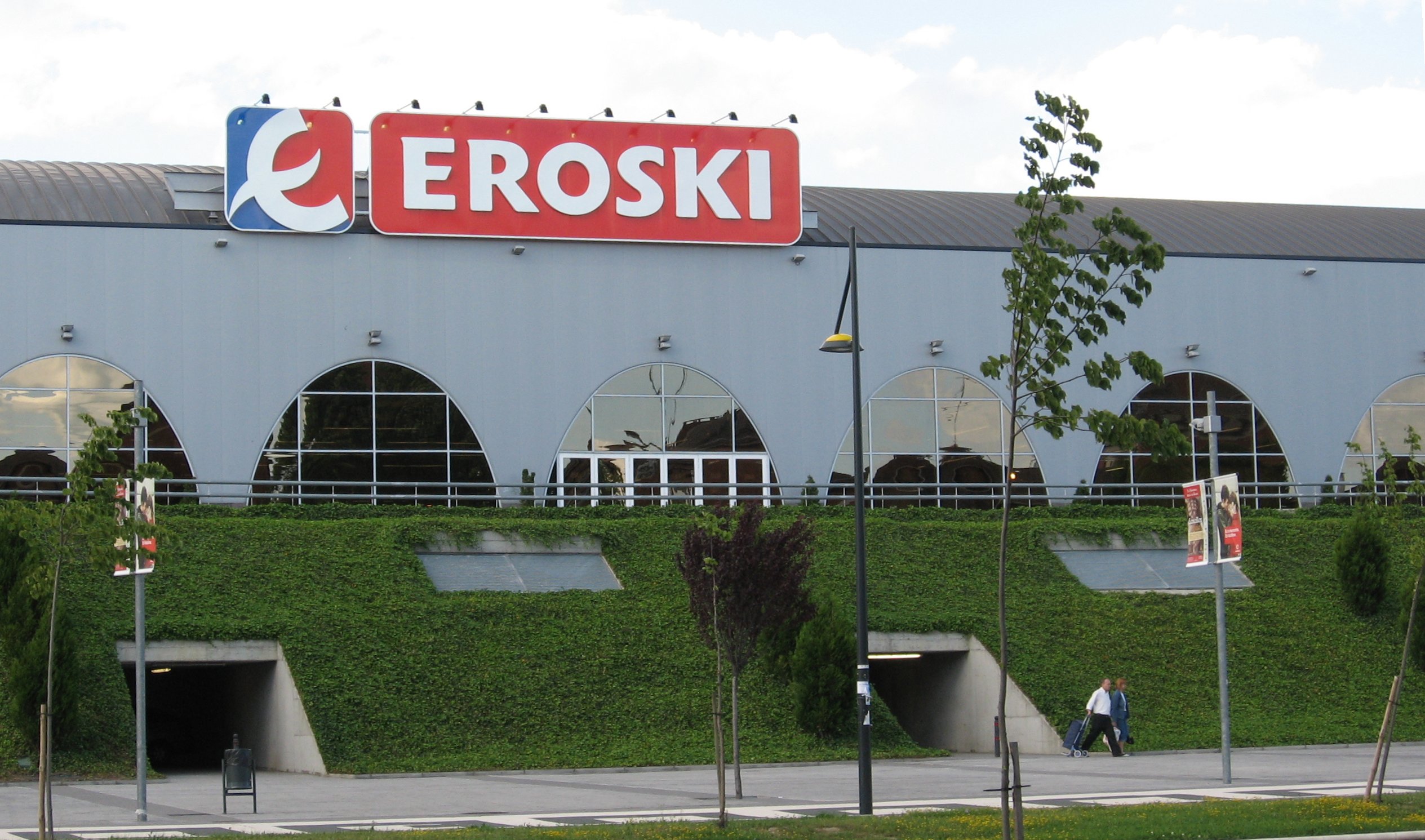|
Mondragón Cooperative Corporation
The Mondragon Corporation is a corporation and federation of worker cooperatives based in the Basque region of Spain. It was founded in the town of Mondragón in 1956 by Father José María Arizmendiarrieta and a group of his students at a technical college he founded. Its first product was paraffin heaters. It is the seventh-largest Spanish company in terms of asset turnover and the leading business group in the Basque Country. At the end of 2016, it employed 74,117 people in 257 companies and organizations in four areas of activity: finance, industry, retail and knowledge. By 2019, 81,507 people were employed. In 2024, it had over 70,000 workers, 30,660 in the Basque Country, 29,340 in the rest of Spain and around 10,000 abroad. Mondragon cooperatives operate in accordance with the Statement on the Co-operative Identity maintained by the International Co-operative Alliance. History In 1941, as a young Catholic priest, Arizmendiarrieta settled in Mondragón, a town w ... [...More Info...] [...Related Items...] OR: [Wikipedia] [Google] [Baidu] |
Worker Cooperative
A worker cooperative is a cooperative owned and Workers' self-management, self-managed by its workers. This control may mean a Company, firm where every worker-owner participates in decision-making in a democratic fashion, or it may refer to one in which management is elected by every worker-owner who each have one vote. Worker cooperatives may also be referred to as labor-managed firms. History Worker cooperatives rose to prominence during the Industrial Revolution as part of the labour movement. As employment moved to industrial areas and job sectors declined, workers began organizing and controlling businesses for themselves. Worker cooperatives were originally sparked by "critical reaction to industrial capitalism and the excesses of the industrial revolution," with the first worker owned and managed firm first appearing in England in 1760. Some worker cooperatives were designed to "cope with the evils of unbridled capitalism and the insecurities of wage labor". The philoso ... [...More Info...] [...Related Items...] OR: [Wikipedia] [Google] [Baidu] |
Catholic Social Teaching
Catholic social teaching (CST) is an area of Catholic doctrine which is concerned with human dignity and the common good in society. It addresses oppression, the role of the state, subsidiarity, social organization, social justice, and wealth distribution. CST's foundations are considered to have been laid by Pope Leo XIII's 1891 encyclical, '' Rerum novarum'', of which interpretations gave rise to distributism (formulated by G. K. Chesterton) and Catholic socialism (proposed by Andrew Collier), among others. Its roots can be traced to Catholic theologians such as Thomas Aquinas and Augustine of Hippo. CST is also derived from the Bible and cultures of the ancient Near East. According to Pope John Paul II, the foundation of social justice "rests on the threefold cornerstones of human dignity, solidarity and subsidiarity". According to Pope Benedict XVI, its purpose "is simply to help purify reason and to contribute, here and now, to the acknowledgment and attainm ... [...More Info...] [...Related Items...] OR: [Wikipedia] [Google] [Baidu] |
Deposit (finance)
A deposit is the act of placing cash (or cash equivalent) with some entity, most commonly with a financial institution, such as a bank. The deposit is a credit for the party (individual or organization) who placed it, and it may be taken back (withdrawn) in accordance with the terms agreed at time of deposit, transferred to some other party, or used for a purchase at a later date. Deposits are usually the main source of funding for banks. Types Demand deposit A demand deposit is a deposit that can be withdrawn or otherwise debited on short notice. Transaction accounts (known as "checking" or "current" accounts depending on the country) can be used to pay other parties, while savings accounts are typically payable only to the depositor or another bank account, and may have limits on the frequency of withdrawal. Time deposit Deposits which are kept for any specific time period are called time deposit or often as term deposit. * Term deposit (or ''time deposit''), bear a fixed t ... [...More Info...] [...Related Items...] OR: [Wikipedia] [Google] [Baidu] |
Major Appliance
A major appliance is a non-portable or semi-portable machine used for routine housekeeping tasks such as cooking, washing laundry, or food preservation. Such appliances are sometimes collectively known as white goods, as the products were traditionally white in color, although a variety of colors are now available. An appliance is different from a plumbing fixture because it uses electricity or fuel. Major appliances differ from small appliances because they are bigger and not portable. They are often considered fixtures and part of real estate and as such they are often supplied to tenants as part of otherwise unfurnished rental properties. Major appliances may have special electrical connections, connections to gas supplies, or special plumbing and ventilation arrangements that may be permanently connected to the appliance. This limits where they can be placed in a home. Since major appliances in a home consume a significant amount of energy, they have become the objective ... [...More Info...] [...Related Items...] OR: [Wikipedia] [Google] [Baidu] |
Automotive Industry
The automotive industry comprises a wide range of company, companies and organizations involved in the design, Business development, development, manufacturing, marketing, selling, Maintenance, repairing, and Custom car, modification of motor vehicles. It is one of the world's largest industry (economics), industries by revenue (from 16% such as in France up to 40% in countries such as Slovakia). The word ''automotive'' comes from the Greek language, Greek ''autos'' (self), and Latin ''motivus'' (of motion), referring to any form of self-powered vehicle. This term, as proposed by Elmer Ambrose Sperry, Elmer Sperry (1860–1930), first came into use to describe automobiles in 1898. History The automotive industry began in the 1860s with hundreds of manufacturers pioneering the Brass Era car, horseless carriage. Early car manufacturing involved manual assembly by a human worker. The process evolved from engineers working on a stationary car to a conveyor belt system where the ... [...More Info...] [...Related Items...] OR: [Wikipedia] [Google] [Baidu] |
Mexico
Mexico, officially the United Mexican States, is a country in North America. It is the northernmost country in Latin America, and borders the United States to the north, and Guatemala and Belize to the southeast; while having maritime boundary, maritime boundaries with the Pacific Ocean to the west, the Caribbean Sea to the southeast, and the Gulf of Mexico to the east. Mexico covers 1,972,550 km2 (761,610 sq mi), and is the List of countries by area, thirteenth-largest country in the world by land area. With a population exceeding 130 million, Mexico is the List of countries by population, tenth-most populous country in the world and is home to the Hispanophone#Countries, largest number of native Spanish speakers. Mexico City is the capital and List of cities in Mexico, largest city, which ranks among the List of cities by population, most populous metropolitan areas in the world. Human presence in Mexico dates back to at least 8,000 BC. Mesoamerica, considered a cradle ... [...More Info...] [...Related Items...] OR: [Wikipedia] [Google] [Baidu] |
Globalisation
Globalization is the process of increasing interdependence and integration among the economies, markets, societies, and cultures of different countries worldwide. This is made possible by the reduction of barriers to international trade, the liberalization of capital movements, the development of transportation, and the advancement of information and communication technologies. The term ''globalization'' first appeared in the early 20th century (supplanting an earlier French term ''mondialisation''). It developed its current meaning sometime in the second half of the 20th century, and came into popular use in the 1990s to describe the unprecedented international connectivity of the post–Cold War world. The origins of globalization can be traced back to the 18th and 19th centuries, driven by advances in transportation and communication technologies. These developments increased global interactions, fostering the growth of international trade and the exchange of ideas, beli ... [...More Info...] [...Related Items...] OR: [Wikipedia] [Google] [Baidu] |
European Economic Community
The European Economic Community (EEC) was a regional organisation created by the Treaty of Rome of 1957,Today the largely rewritten treaty continues in force as the ''Treaty on the functioning of the European Union'', as renamed by the Lisbon Treaty. aiming to foster economic integration among its member states. It was subsequently renamed the European Community (EC) upon becoming integrated into the Three pillars of the European Union, first pillar of the newly formed European Union (EU) in 1993. In the popular language, the singular ''European Community'' was sometimes inaccurately used in the wider sense of the plural ''European Communities'', in spite of the latter designation covering all the three constituent entities of the first pillar. The EEC was also known as the European Common Market (ECM) in the English-speaking countries, and sometimes referred to as the European Community even before it was officially renamed as such in 1993. In 2009, the EC formally ceased to ... [...More Info...] [...Related Items...] OR: [Wikipedia] [Google] [Baidu] |
Consumer Co-operative
A consumer cooperative is an business, enterprise owned by consumers and managed democracy, democratically and that aims at fulfilling the needs and aspirations of its members. Such cooperatives operate within the market economy independently of the state, as a form of mutual aid oriented toward service rather than pecuniary profit. Many cooperatives, however, do have a degree of profit orientation. Just like other corporations, some cooperatives issue dividends to owners based on a share of total net profit or earnings (all owners typically receive the same amount); or based on a percentage of the total amount of purchases made by the owner. Regardless of whether they issue a dividend or not, most consumers’ cooperatives will offer owners discounts and preferential access to goods and services. Consumer cooperatives often take the form of retail outlets owned and operated by their consumers, such as food cooperatives. However, there are many types of consumers' cooperatives, ope ... [...More Info...] [...Related Items...] OR: [Wikipedia] [Google] [Baidu] |
Eroski
Eroski is a Spanish supermarket chain headquartered in Elorrio, Basque Country (autonomous community), Basque Country. It is run as a worker-consumer hybrid co-operative within the Mondragón Corporation group, with nearly 1,000 outlets spread across Spain (excluding franchises). The establishments vary in size from the largest hypermarkets, simply named 'Eroski' (of which there are 75 stores, including 40 with petrol stations), down to smaller 'Eroski Center' stores (473, including 2 petrol stations). There are also 219 'Eroski City' outlet store, outlets and 234 'Eroski Viajes' travel agent centres. The group's total sales floor space is approximately . The name Eroski is a combination of the Basque words "erosi" (to buy) and "toki" (place). History The company was founded in 1969 in the regions of Biscay and Gipuzkoa in Spain as a co-operative between ten supermarkets in the region. Its headquarters are located in Elorrio, Biscay. Franchises ''Aliprox'' supermarkets are not ... [...More Info...] [...Related Items...] OR: [Wikipedia] [Google] [Baidu] |
Economy Of Spain
The economy of Spain is a highly developed social market economy. It is the world's 12th largest by nominal GDP and the sixth-largest in Europe (fifth excluding Russia). Spain is a member of the European Union and the eurozone, as well as the Organization for Economic Co-operation and Development and the World Trade Organization. In 2023, Spain was the 18th-largest exporter in the world. Meanwhile, in 2022, Spain was the 15th-largest importer in the world. Spain is listed 27th in the United Nations Human Development Index and 29th in GDP per capita by the International Monetary Fund. Some main areas of economic activity are the automotive industry, medical technology, chemicals, shipbuilding, tourism and the textile industry. Among OECD members, Spain has a highly efficient and strong social security system, which comprises roughly 23% of GDP. During the Great Recession, Spain's economy was also in a recession. Compared to the EU and US averages, the Spanish economy e ... [...More Info...] [...Related Items...] OR: [Wikipedia] [Google] [Baidu] |






